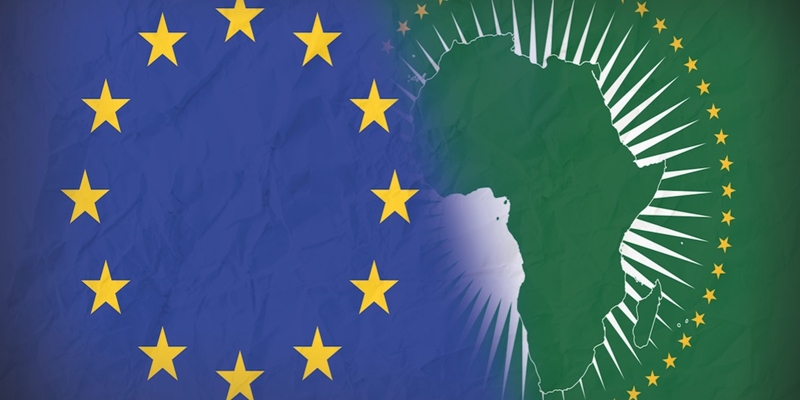European Union Targets Comprehensive Partnership with Africa

The European Union seeks to build strongly on its existing economic and trade relationship during the forthcoming February (14 – 18th) summit with African leaders, and the African Union. Leading business enterprises and representatives from academic, civil society organizations and media will attend the forthcoming summit to discuss ways of strengthening development in Africa. European Union members and business investors have been exploring emerging opportunities offered by the newly introduced African Continental Free Trade Area (AfCFTA), which provides a unique and valuable access to an integrated African market of over 1.2 billion people.
The summit strives to bring Africa and Europe closer together through strengthening economic cooperation and promoting sustainable development, with both continents co-existing in peace, security, democracy, prosperity, solidarity and human dignity.
The summit will explore support of AfCFTA implementation and the green transition; improving trade and investment climate between the EU and Africa; reinforcing high level public private dialogue; enhancing long-term dialogue structures between EU and Africa Business Associations; and unlocking new business and investment opportunities, including in the areas of manufacturing and agro-processing as well as regional and continental value chains development.
The Joint EU-Africa Strategy will take into cognizance common interests such as climate change, global security and the achievement of the United Nations Sustainable Development Goals (SDGs).
Valdis Dombrovskis, Executive Vice-President and Commissioner for Trade as well as chair of Commissioners' group on an Economy that Works for People, has indicated that trade and investment relations are part of the priorities with Africa.
The EU is the leading exporter of COVID-19 vaccines to Africa and is collaborating with regional hubs to produce vaccines in Africa. Valdis Dombrovskis asserts that “in order to respond to current and future health challenges, improvements must be made in terms of vaccine and pharmaceutical manufacturing, health infrastructure, research capacity and preparedness.”
Today, only around 17% of African trade flows take place between African countries. The EU stands ready to help. Valdis Dombrovskis notes that the EU wants to share the lessons from its own process of economic integration.
The EU has a diverse range of trade agreements with countries in Africa and aims at widening and deepening these agreements with African countries that are willing.
Inge Kaul, a Senior fellow at the Hertie School, Berlin, describes the forthcoming summit as the ideal time for EU leaders to press the reset button and let the summit be a significant moment in history - the beginning of an EU-AU partnership on an equal footing. She recommends that the February 2022 summit places the issue of a new, more differentiated architecture of international cooperation and its financing on the agenda of their next summit which is due to happen, if all goes well, in 2024.
African leaders and business people must, on the other hand, explore available possibilities and windows that have been opened. The European Union has unveiled €300 billion (US$340 billion) alternative to China's Belt and Road initiative -- an investment programme the bloc claims will create links, not dependencies.
According to Jutta Urpilainen, the EU Commissioner for International Partnerships, the Global Gateway will help to create strong and sustainable links, not dependencies, between Europe and the world. It aims at mobilizing investments in digital, clean energy and transport networks, as well as boosting health, education and research systems across the world. Thus, it is for African countries to figure out where and how they fit into this EU programme, as it also earmarked Africa as a priority, for instance collaborating with the Africa Centres for Disease Control and Prevention.
Africa has been described as the last investment frontier. During the 35th Assembly of the Heads of State and Government of the AU in Addis Ababa in February, António Guterres argued that Africa was “a source of hope” for the world. He pointed to a few improvement steps such as the introduction of the African Continental Free Trade Area and the Decade of Financial and Economic Inclusion for African Women.
Akinwumi Adesina, the President of the African Development Bank, has similarly explained that the African Continental Free Trade Area opens huge opportunities, in particular in infrastructure and energy in terms of renewable energy and digital infrastructure.
Kristalina Georgieva, Managing Director of the International Monetary Fund, and Macky Sall, President of Senegal observe that Africa is on a new sustainable growth trajectory, but this transition is costly – at least initially – for a region that already strives to finance other Sustainable Development Goals. Some of these must be shared by the international community.
The EU-Africa summit, February (14 – 18th) is expected to search for more effective ways to scale-up sustainable development in Africa. Despite new challenges, especially the notorious pandemic, the European players still keep in mind and try to incorporate into their diplomacy with the continent most aspects of directions that meet the commitments to the 2030 Agenda of the United Nations.
By Kester Kenn Klomegah
The author writes frequently on Russia, Africa and the BRICS.
